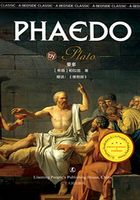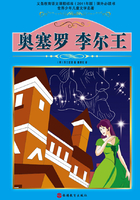Matthew Arnold, in an address on Emerson delivered in Boston, gave an excellent estimate of the rank we should accord to him in the great hierarchy of letters. Some, perhaps, will think that Arnold was unappreciative and cold, but dispassionate readers will be inclined to agree with his judgment of our great American.
After a review of the poetical works of Emerson the English critic draws his conclusions as follows:
"I do not then place Emerson among the great poets. But I go farther, and say that I do not place him among the great writers, the great men of letters. Who are the great men of letters? They are men like Cicero, Plato, Bacon, Pascal, Swift, Voltaire-writers with, in the first place, a genius and instinct for style… Brilliant and powerful passages in a man's writings do not prove his possession of it. Emerson has passages of noble and pathetic eloquence; he has passages of shrewd and felicitous wit; he has crisp epigram; he has passages of exquisitely touched observation of nature. Yet he is not a great writer… Carlyle formulates perfectly the defects of his friend's poetic and literary productions when he says: 'For me it is too ethereal, speculative, theoretic; I will have all things condense themselves, take shape and body, if they are to have my sympathy.'…
"… Not with the Miltons and Grays, not with the Platos and Spinozas, not with the Swifts and Voltaires, not with the Montaignes and Addisons, can we rank Emerson. No man could see this clearer than Emerson himself. 'Alas, my friend,' he writes in reply to Carlyle, who had exhorted him to creative work,-'Alas, my friend, I can do no such gay thing as you say. I do not belong to the poets, but only to a low department of literature,-the reporters; suburban men.' He deprecated his friend's praise; praise 'generous to a fault' he calls it; praise 'generous to the shaming of me,-cold, fastidious, ebbing person that I am.'"
After all this unfavorable criticism Arnold begins to praise. Quoting passages from the Essays, he adds:
"This is tonic indeed! And let no one object that it is too general; that more practical, positive direction is what we want… Yes, truly, his insight is admirable; his truth is precious. Yet the secret of his effect is not even in these; it is in his temper. It is in the hopeful, serene, beautiful temper wherewith these, in Emerson, are indissolubly united; in which they work and have their being… One can scarcely overrate the importance of holding fast to happiness and hope. It gives to Emerson's work an invaluable virtue. As Wordsworth's poetry is, in my judgment, the most important done in verse, in our language, during the present century, so Emerson's Essays are, I think, the most important work done in prose… But by his conviction that in the life of the spirit is happiness, and by his hope that this life of the spirit will come more and more to be sanely understood, and to prevail, and to work for happiness,-by this conviction and hope Emerson was great, and he will surely prove in the end to have been right in them… You cannot prize him too much, nor heed him too diligently."
Herman Grimm, a German critic of great influence in his own country, did much to obtain a hearing for Emerson's works in Germany. At first the Germans could not understand the unusual English, the unaccustomed turns of phrase which are so characteristic of Emerson's style.
"Macaulay gives them no difficulty; even Carlyle is comprehended. But in Emerson's writings the broad turnpike is suddenly changed into a hazardous sandy foot-path. His thoughts and his style are American. He is not writing for Berlin, but for the people of Massachusetts… It is an art to rise above what we have been taught… All great men are seen to possess this freedom. They derive their standard from their own natures, and their observations on life are so natural and spontaneous that it would seem as if the most illiterate person with a scrap of common-sense would have made the same… We become wiser with them, and know not how the difficult appears easy and the involved plain.
"Emerson possesses this noble manner of communicating himself. He inspires me with courage and confidence. He has read and seen but conceals the labor. I meet in his works plenty of familiar facts, but he does not employ them to figure up anew the old worn-out problems: each stands on a new spot and serves for new combinations. From everything he sees the direct line issuing which connects it with the focus of life…
"… Emerson's theory is that of the 'sovereignty of the individual.' To discover what a young man is good for, and to equip him for the path he is to strike out in life, regardless of any other consideration, is the great duty to which he calls attention. He makes men self-reliant. He reveals to the eyes of the idealist the magnificent results of practical activity, and unfolds before the realist the grandeur of the ideal world of thought. No man is to allow himself, through prejudice, to make a mistake in choosing the task to which he will devote his life. Emerson's essays are, as it were, printed sermons-all having this same text… The wealth and harmony of his language overpowered and entranced me anew. But even now I cannot say wherein the secret of his influence lies. What he has written is like life itself-the unbroken thread ever lengthened through the addition of the small events which make up each day's experience."
Froude in his famous "Life of Carlyle" gives an interesting description of Emerson's visit to the Carlyles in Scotland:
"The Carlyles were sitting alone at dinner on a Sunday afternoon at the end of August when a Dumfries carriage drove to the door, and there stepped out of it a young American then unknown to fame, but whose influence in his own country equals that of Carlyle in ours, and whose name stands connected with his wherever the English language is spoken. Emerson, the younger of the two, had just broken his Unitarian fetters, and was looking out around him like a young eagle longing for light. He had read Carlyle's articles and had discerned with the instinct of genius that here was a voice speaking real and fiery convictions, and no longer echoes and conventionalisms. He had come to Europe to study its social and spiritual phenomena; and to the young Emerson as to the old Goethe, the most important of them appeared to be Carlyle… The acquaintance then begun to their mutual pleasure ripened into a deep friendship, which has remained unclouded in spite of wide divergences of opinion throughout their working lives."
Carlyle wrote to his mother after Emerson had left:
"Our third happiness was the arrival of a certain young unknown friend named Emerson, from Boston, in the United States, who turned aside so far from his British, French, and Italian travels to see me here! He had an introduction from Mill and a Frenchman (Baron d'Eichthal's nephew) whom John knew at Rome. Of course, we could do no other than welcome him; the rather as he seemed to be one of the most lovable creatures in himself we had ever looked on. He stayed till next day with us, and talked and heard to his heart's content, and left us all really sad to part with him."
In 1841 Carlyle wrote to John Sterling a few words apropos of the recent publication of Emerson's essays in England:
"I love Emerson's book, not for its detached opinions, not even for the scheme of the general world he has framed for himself, or any eminence of talent he has expressed that with, but simply because it is his own book; because there is a tone of veracity, an unmistakable air of its being his, and a real utterance of a human soul, not a mere echo of such. I consider it, in that sense, highly remarkable, rare, very rare, in these days of ours. Ach Gott! It is frightful to live among echoes. The few that read the book, I imagine, will get benefit of it. To America, I sometimes say that Emerson, such as he is, seems to me like a kind of New Era."
John Morley, the acute English critic, has made an analytic study of Emerson's style, which may reconcile the reader to some of its exasperating peculiarities.
"One of the traits that every critic notes in Emerson's writing is that it is so abrupt, so sudden in its transitions, so discontinuous, so inconsecutive. Dislike of a sentence that drags made him unconscious of the quality that French critics name coulant. Everything is thrown in just as it comes, and sometimes the pell-mell is enough to persuade us that Pope did not exaggerate when he said that no one qualification is so likely to make a good writer as the power of rejecting his own thoughts… Apart from his difficult staccato, Emerson is not free from secondary faults. He uses words that are not only odd, but vicious in construction; he is sometimes oblique and he is often clumsy; and there is a visible feeling after epigrams that do not always come. When people say that Emerson's style must be good and admirable because it fits his thought, they forget that though it is well that a robe should fit, there is still something to be said about its cut and fashion… Yet, as happens to all fine minds, there came to Emerson ways of expression deeply marked with character. On every page there is set the strong stamp of sincerity, and the attraction of a certain artlessness; the most awkward sentence rings true; and there is often a pure and simple note that touches us more than if it were the perfection of elaborated melody. The uncouth procession of the periods discloses the travail of the thought, and that, too, is a kind of eloquence. An honest reader easily forgives the rude jolt or unexpected start when it shows a thinker faithfully working his way along arduous and unworn tracks. Even at the roughest, Emerson often interjects a delightful cadence. As he says of Landor, his sentences are cubes which will stand firm, place them how or where you will. He criticised Swedenborg for being superfluously explanatory, and having an exaggerated feeling of the ignorance of men. 'Men take truths of this nature,' said Emerson, 'very fast;' and his own style does no doubt very boldly take this capacity for granted in us. In 'choice and pith of diction,' again, of which Mr. Lowell speaks, he hits the mark with a felicity that is almost his own in this generation. He is terse, concentrated, and free from the important blunder of mistaking intellectual dawdling for meditation. Nor in fine does his abruptness ever impede a true urbanity. The accent is homely and the apparel plain, but his bearing has a friendliness, a courtesy, a hospitable humanity, which goes nearer to our hearts than either literary decoration or rhetorical unction. That modest and lenient fellow-feeling which gave such charm to his companionship breathes in his gravest writing, and prevents us from finding any page of it cold or hard or dry."
E.P. Whipple, the well-known American critic, wrote soon after Emerson's death:
"But 'sweetness and light' are precious and inspiring only so far as they express the essential sweetness of the disposition of the thinker, and the essential illuminating power of his intelligence. Emerson's greatness came from his character. Sweetness and light streamed from him because they were in him. In everything he thought, wrote, and did, we feel the presence of a personality as vigorous and brave as it was sweet, and the particular radical thought he at any time expressed derived its power to animate and illuminate other minds from the might of the manhood, which was felt to be within and behind it. To 'sweetness and light' he therefore added the prime quality of fearless manliness.
"If the force of Emerson's character was thus inextricably blended with the force of all his faculties of intellect and imagination, and the refinement of all his sentiments, we have still to account for the peculiarities of his genius, and to answer the question, why do we instinctively apply the epithet 'Emersonian' to every characteristic passage in his writings? We are told that he was the last in a long line of clergymen, his ancestors, and that the modern doctrine of heredity accounts for the impressive emphasis he laid on the moral sentiment; but that does not solve the puzzle why he unmistakably differed in his nature and genius from all other Emersons. An imaginary genealogical chart of descent connecting him with Confucius or Gautama would be more satisfactory.
"What distinguishes the Emerson was his exceptional genius and character, that something in him which separated him from all other Emersons, as it separated him from all other eminent men of letters, and impressed every intelligent reader with the feeling that he was not only 'original but aboriginal.' Some traits of his mind and character may be traced back to his ancestors, but what doctrine of heredity can give us the genesis of his genius? Indeed, the safest course to pursue is to quote his own words, and despairingly confess that it is the nature of genius 'to spring, like the rainbow daughter of Wonder, from the invisible, to abolish the past, and refuse all history.'"















